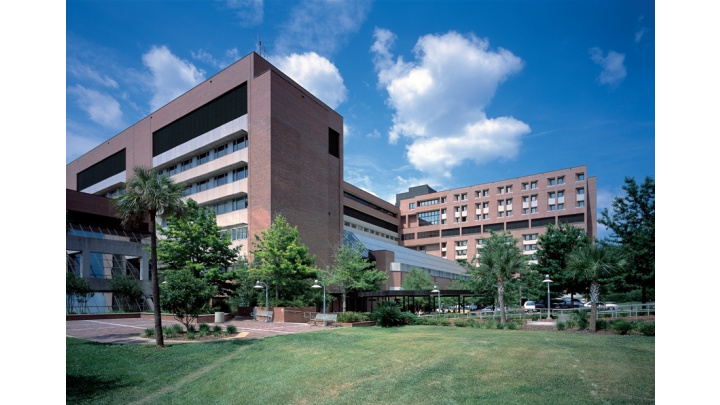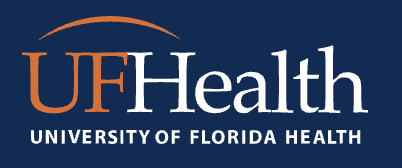UF Health Shands Hospital


Overview
UF Health Shands Hospital is a mental health treatment center for people seeking treatment near Alachua County. As part of their treatment modalities for recovery, UF Health Shands Hospital provides electroconvulsive therapy during treatment. UF Health Shands Hospital is located in Gainesville, Florida, accepting medicaid for treatment.
UF Health Shands Hospital at a Glance
Payment Options
- Medicaid
- Private health insurance
- Cash or self-payment
- State-financed health insurance plan other than Medicaid
- Medicare
Assessments
- Comprehensive mental health assessment
Age Groups
- Adults
- Young adults
Operation
- Private for-profit organization
Treatment At UF Health Shands Hospital

Conditions Treated
Mental health treatment:
Mental health treatment involves a range of therapeutic approaches, provided by licensed professionals, to address mental health challenges. It includes psychotherapy, medication, and holistic practices to help individuals manage conditions, improve coping skills, and enhance overall well-being. The goal is to empower individuals to lead fulfilling lives and reduce the stigma surrounding mental health.

Levels Of Care
Partial Hospitalization Program:
A Partial Hospitalization Program (PHP) is an intensive rehabilitation option, typically designed for individuals with acute symptoms that are challenging to handle but don't necessitate round-the-clock care. PHPs provide structured therapeutic activities, which can include individual and group sessions, and generally operate 3-5 days a week, from approximately 9 am to 3 pm. While some PHPs are residential, allowing patients to stay overnight, others are non-residential, enabling patients to return home each evening. The duration of a PHP can range from 1 to 6 months, and some programs also offer transportation and meals to participants.
Outpatient:
Outpatient programs cater to individuals who are in good medical condition and are not at a heightened risk of relapse, including those who have successfully finished their inpatient treatment. These programs usually build upon clients' existing treatment strategies, providing ongoing addiction counseling and educational support for recovery. Individuals who enter outpatient care right after detoxification may also undergo medical and psychological evaluations, followed by the creation of personalized treatment plans. Most outpatient rehabilitation centers offer various levels of care tailored to meet each client's specific needs.
Hospital inpatient treatment:
Inpatient treatment involves a comprehensive residential therapeutic program where patients stay on-site for a duration typically ranging from 30 to 90 days. This immersive environment offers structured support, ensuring safety and a focus on recovery. Therapies provided include individual and group counseling, cognitive-behavioral therapy, holistic treatments, family therapy sessions, and experiential therapies. The aim is to address addiction or mental health disorders' physical, emotional, and psychological aspects, laying a robust foundation for sustained healing.

Treatment Modalities
Electroconvulsive Therapy:
Electroconvulsive Therapy (ECT) is a medical treatment for severe mental health conditions involving controlled electric currents to induce brief seizures in the brain. It's administered under anesthesia when other treatments aren't effective. ECT's mechanism isn't fully understood, but it can provide relief for conditions like severe depression. Its use is subject to ethical and cultural considerations, and advances have made it safer and more effective in treating serious mental health issues.
Nicotine replacement:
Nicotine Replacement Therapy (NRT) is a medically-approved method to aid individuals in quitting smoking. It provides a controlled and lower dose of nicotine to alleviate withdrawal symptoms and cravings, facilitating a smoother transition towards a nicotine-free life. By bypassing the harmful substances found in cigarettes, NRT offers a safer alternative while individuals work on overcoming their addiction.
Group counseling:
Group therapy entails therapeutic sessions conducted in a collective setting rather than one-on-one. It encompasses various modalities, from support groups and experiential therapy to psycho-education and beyond. The approach focuses on treatment and emphasizes the dynamic interactions and shared experiences among group members.
Experiential Therapy:
Experiential therapy is a therapeutic approach that encourages patients to identify and address hidden or subconscious issues through activities, interactions, and role-playing. Instead of focusing solely on talking, therapists use experiential techniques to help clients relive past traumas, express emotions, and gain insights into their behaviors. The aim is to foster personal growth and enhance self-awareness by immersing individuals in experiences that can lead to a deeper understanding of themselves and their relationships.
Nutrition Therapy:
Nutrition therapy, aka medical nutrition therapy (MNT), treats physical, emotional, and medical conditions through diet. Specific dietary plans are designed by professional nutritionists or registered dietitians, and patients follow them in order to affect their physical and mental health positively.
Individual psychotherapy:
Individual therapy is a one-on-one therapeutic interaction between a therapist and a client to address personal challenges, foster self-awareness, and promote mental, emotional, and behavioral growth. This setting provides a confidential and supportive environment for individuals to explore their thoughts, feelings, and behaviors, identify goals, and develop coping strategies. Individual therapy can be beneficial for a range of concerns, including anxiety, depression, stress management, relationship issues, and life transitions.
Recreational Therapy:
Recreational therapy, also known as therapeutic recreation, employs enjoyable and imaginative activities to aid in addiction recovery. Guided by recreational therapists, patients participate in lively activities such as sports, games, various art forms like drawing and painting, drama, music, dance, and community excursions. These activities are designed to enhance patients' physical, social, and emotional health.
Ancillary Services
Languages
- Sign language services for the deaf and hard of hearing
- Spanish
Special Programs
- Persons 18 and older with serious mental illness (SMI)
Contact Information
DISCLAIMER: The facility name, logo and brand are the property and registered trademarks of UF Health Shands Hospital, and are being used for identification and informational purposes only. Use of these names, logos and brands shall not imply endorsement. BetterAddictionCare.com is not affiliated with or sponsored by UF Health Shands Hospital.

